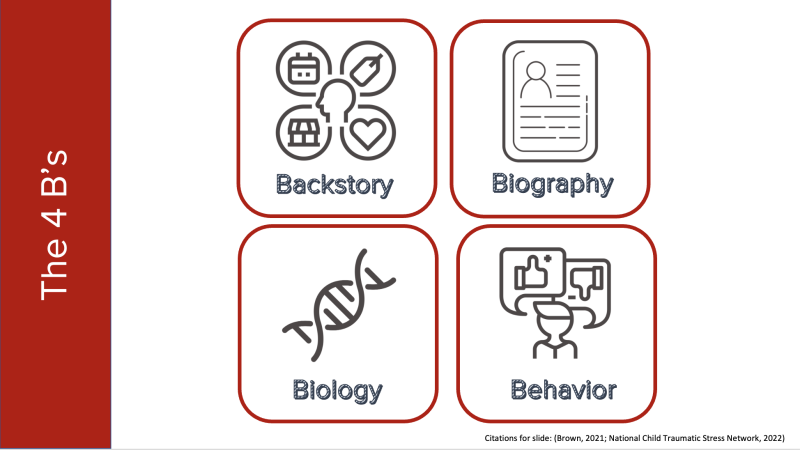Supporting Student-Athlete Mental Health Course Refresher
Signs and Symptoms
Mental health concerns can be genetic (Biology) or due to a child’s life experiences (i.e., Backstory, Biography, or Behaviors). Stress and trauma can reshape pathways in the brain that influence children and adolescents’ behaviors, thoughts, feelings, and physical demeanor. This resource overviews common signs and symptoms of some of the most prevalent mental health concerns affecting children and adolescents in the United States.

Wellness Check-Ins
Coaches often check-in with student-athletes who are dealing with injuries, recovering from concussions, or struggling with academic issues. Coaches then utilize this information to link and refer student-athletes to needed supports (i.e., athletic trainers, doctors, caregivers, teachers, etc.). Comparably, coaches can utilize wellness check-ins to acknowledge student-athletes stressors, identify signs and symptoms of persistent stress, and connect athletes to mental health personnel, supports, or services. Wellness check-ins give coaches opportunities to follow-up in safe and supportive ways (i.e., "I noticed during our check-in you..."). View resource here
QPR
Coaches’ responsibilities are not to become therapists but rather frontline practitioners who can help refer and link athletes to mental health resources. Just like coaches engage in CPR in an emergency, we encourage coaches to engage in QPR techniques - Question, Pause, Persuade, and Refer.